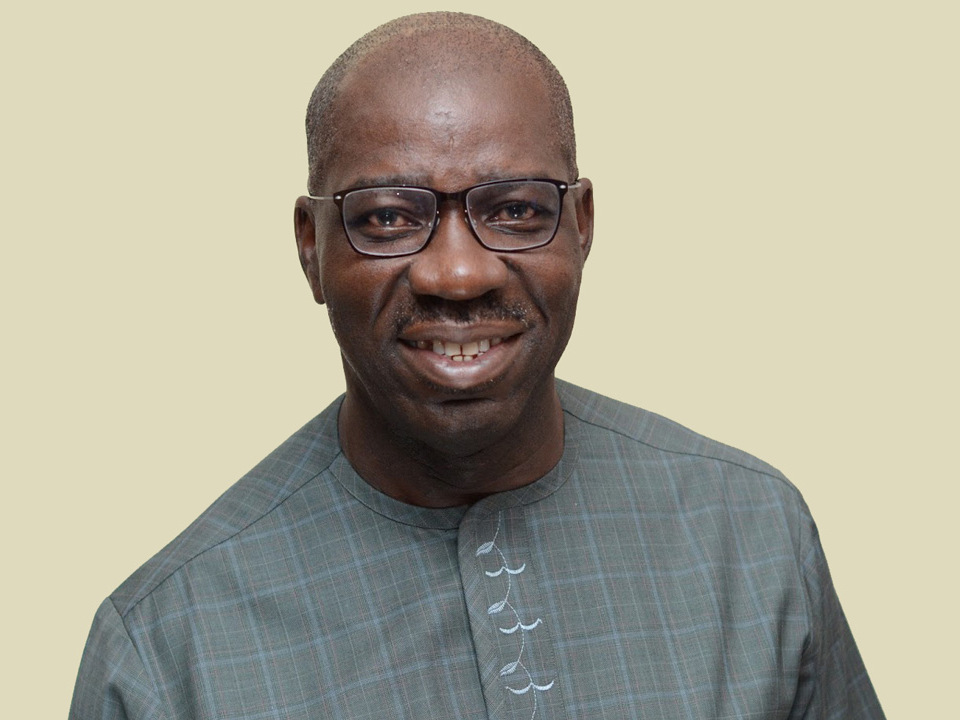Obaseki, Singaporean President, other global city leaders debates on execution smart city projects

The Edo State governor, Mr. Godwin Obaseki, the President of Singapore, Halimah Yacob, Minister of National Development and Second Minister for Finance, Singapore, Lawrence Wong; with over one hundred representatives of national and municipal governments as well as leading private sector players in cities development, at the weekend began deliberations on how to eliminate challenges to sustainable cities at the World Cities Summit in Singapore.
The meeting of experts organisers say, “is an exclusive platform for government leaders and industry experts to address livable and sustainable city challenges, share integrated urban solutions and forge new partnerships.”
Jointly organised by Singapore’s Centre for Livable Cities and Urban Redevelopment Authority, the biennial summit, features the Lee Kuan Yew World City Prize; the annual World Cities Summit Mayors Forum; and World Cities Summit Young Leaders Symposium.
In his contributions at the global summit, Obaseki made a case for smarter cities that would rely on information and communication technology (ICT) for the efficient management of cities’ assets and resources.
The governor’s smart city proposition, according to experts“ is an urban center that uses different types of electronic data collection sensors to supply information which is used to manage assets and resources efficiently.
“This includes data collected from citizens, devices, and assets that is processed and analysed to monitor and manage traffic and transportation systems, power plants, water supply networks, waste management, law enforcement, information systems, schools, libraries, hospitals, and other community services.
“The smart city concept integrates information and communication technology (ICT), and various physical devices connected to the network (the Internet of Things (IoT) to optimise the efficiency of city operations and services and connect to citizens. Smart city technology allows city officials to interact directly with both community and city infrastructure and to monitor what is happening in the city and how the city is evolving.”
Organisers explained that the “World Cities Summit Mayors Forum is an annual by-invitation-only global event for city leaders to discuss pressing urban issues and share best practices with one another.
“The peer-to-peer platform invites mayors and senior leaders from international organisations and the industry to exchange experiences in developing integrated urban solutions, building economic and environmental resilience, engaging with communities and sustaining a high quality of life in urban regions. Participants will hear from each other on innovations and changes they are implementing in their cities, and how these are managed.”
Obaseki will showcase the impact of the revamped Edo State Traffic Management Agency (EDSTMA) in the state, the agency’s civil but firm approach to traffic management after months of training and the positive reception and feedbacks from road-users months after its revamp.
He will also showcase the work of the Edo State Geographic Information Service Agency (EGIS), the Ministry for Physical Planning and Urban Development and the Land Bureau that are working together in generating land data for development, easing transfer of land titles and in obtaining Certificate of Occupancy as well as the simplification and speedy issuance of approvals for businesses amongst others.
The Edo State delegation has the Managing Director of the Edo Geographic Information Service Agency, Architect Frank Evbuomwan, the Commissioner for Physical Planning and Urban Development, Mr Edorodion Oye Erimona, the chairmen of Oredo, Ikpoba-Okha and Egor local government areas.
The Lee Kuan Yew World City Prize Lecture & Forum, a major feature of the Summit, recognises outstanding international initiatives for city excellence by outstanding individuals and organisations who have contributed urban initiatives, policies or projects which epitomise foresight, good governance or innovation in overcoming the challenges faced by cities.
The organisers further said that the Lecture and forum discussions will focus on four key pillars that are instrumental to the success of every city and its quality of urban life – livability, vibrancy, sustainability and quality of life.
The World Cities Summit Young Leaders Symposium is an annual gathering of a select group of change-makers from diverse sectors who shape the global urban agenda where the decisions that leaders make today will impact more than half of the world’s population. The World Cities Summit Young Leaders Symposium provides a platform for discourse on pressing urban issues and to launch initiatives to tackle the challenges of urbanisation such as planning for urbanisation and preparing cities to be inclusive by creating better access to opportunities such as affordable housing, sustainable transportation, accessible education and meaningful employment.
With participants drawn from Europe, North and Latin America, Middle East, Asia and Africa and the Oceania, the summit will also feature a series of high-level plenary sessions which provide strategic insights from senior city and organisational leaders on the interplay of leadership and governance and the latest debate on livability and sustainability. The Plenary sessions will be complemented by thematic tracks for in-depth discussion of specific urban issues.
Relate









0 Comments